|
|

|
|
|
|
|
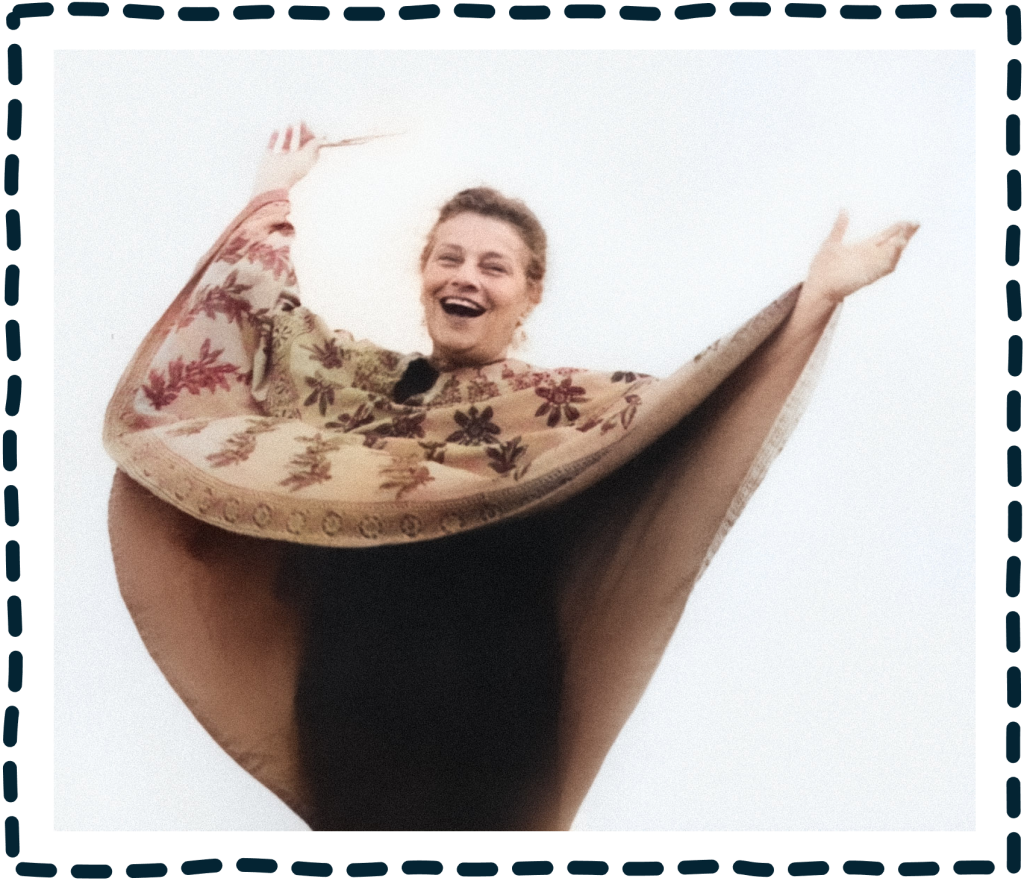
|
|
In the 1940s and 50s, Viola Spolin was transforming how we understand learning through her pioneering work in improvisational theatre. Working with the Compass Players in Chicago, Spolin developed a systematic approach to theatre training that would influence generations of performers and educators.
|
Her seminal book, "Improvisation for the Theater," published in 1963, remains a cornerstone text for theatre practitioners. Through her son Paul Sills, she founded The Second City, a comedy theatre that would become a proving ground for some of comedy's most celebrated talents—Tina Fey, Steve Carell, Stephen Colbert, Bill Murray, John Belushi, Dan Aykroyd, Amy Poehler...
|
Spolin's technique centred on what she called "theatre games"—structured improvisational exercises designed to liberate performers from self-consciousness and mechanical acting. These weren't just performance techniques, but carefully constructed learning experiences that challenged participants to be fully present, responsive, and creative.
|
|
|
|
"Through improvisation," Spolin wrote, "the actor learns to trust his own spontaneity, to rely on his own discoveries, to be both the source and the critic of his own work."
|
|
|
|
|
|
|
|
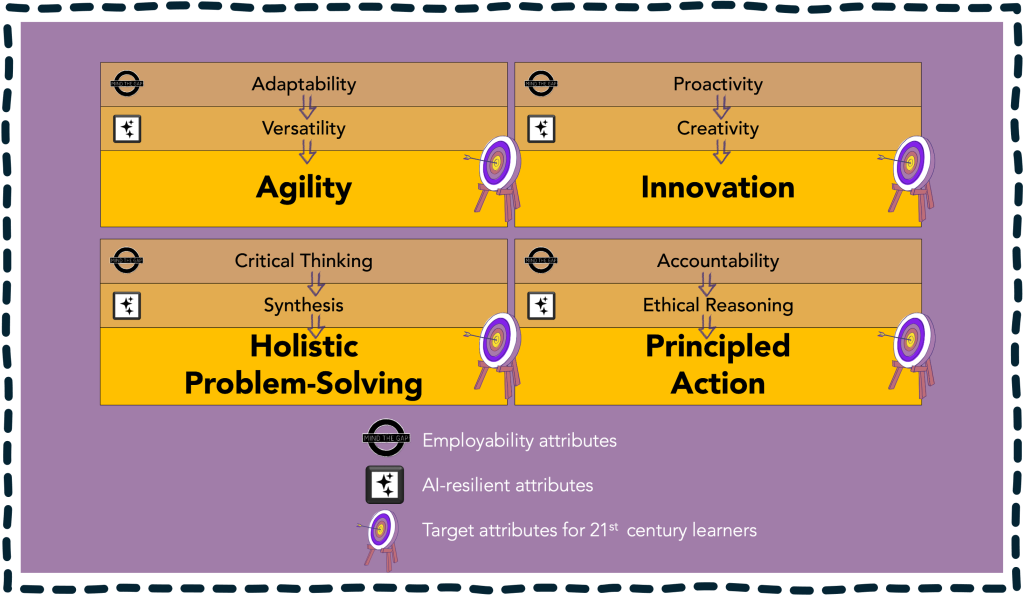
|
|
|
Spolin's championing of improvisation speaks directly to how we develop these essential human capabilities—spontaneity that helps us move quickly when things change, the confidence to rely on our own discoveries and turn them into innovative solutions, an ability to synthesise by connecting different perspectives, and the wisdom to be both 'the source and the critic' of our own efforts.
|
Just as Spolin argues that performance emerges from the ability to create and critique in the moment, learning transforms when we move beyond recitation to active, adaptive understanding.
|
Declarative knowledge—the facts, definitions, and information we can recite—becomes truly powerful only when transformed into functioning knowledge. Functioning knowledge is what happens when we move beyond simply storing information and learn to apply it in unpredictable, real-world contexts.
|
|
This transformation doesn't occur through passive learning, but through active engagement—through improvisation, experimentation, and reflection. It's about turning static information into a living, adaptable capability.
|
|
|
|
|
|
|

|
|
Turning information into 'a living, adaptable capability' was precisely the challenge IO-Sphere presented us. As a data analysis start-up, they'd discovered a critical gap: technically skilled analysts who understood the numbers but couldn't breathe life into that knowledge within real workplace contexts.
|
|
Ding approached this comprehensively, developing a multi-dimensional learning experience that went far beyond traditional training. We created an entire ecosystem of video-based learning resources, working with professional actors and a professional film crew to bring a fictional data analysis team to life. We filmed on location within IO-Sphere's own premises, crafting intricate characters and scenarios that directly mirrored the real-world challenges their learners would encounter.
|
|
|
|
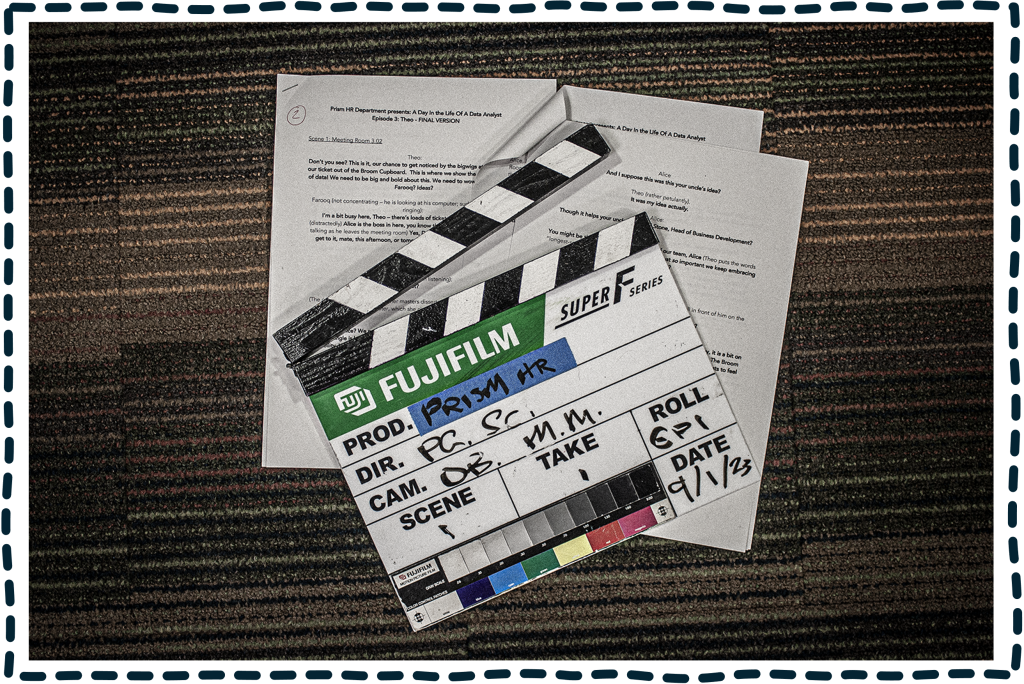
|
|
|
Our approach was holistic: we developed the characters, wrote detailed scripts, and produced professionally filmed narratives that introduced learners to a team of data analysts struggling with the very professional complexities they would likely face.
|
These video resources weren't standalone content, but became the foundation for project briefs, learning activities, and immersive scenarios that surfaced the real turbulence of workplace dynamics—the conflicts, challenges, and collaborative complexities that traditional training typically sanitises.
|
|
Drawing from film and TV storytelling techniques, we crafted scenarios that demanded more than data analysis. Participants had to create value, tell compelling stories, navigate workplace dynamics, and influence decision-makers.
|
|
|
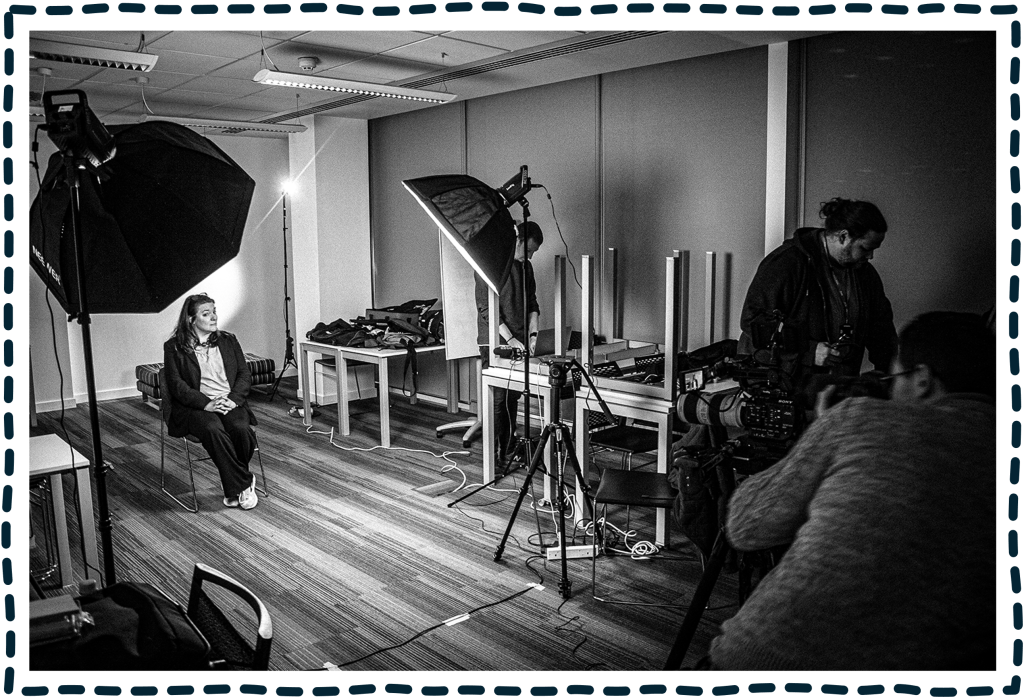
|
|
Each scenario functioned like a carefully designed improvisational game, pushing participants to trust their spontaneity, rely on their discoveries, and become both creators and critics of their own professional performance.
|
|
The learners responded enthusiastically to this in-scenario approach, engaging deeply with a learning experience that felt authentically messy and real. For IO-Sphere, this approach wasn't just about delivering exceptional training—it was about carving out a distinctive position in a crowded data boot camp marketplace.
|
|
|
|

|
|
|
|
|
|
Advait Kottary, an actor who performed in the IO-Sphere project, captured Ding's scenario-centred approach perfectly. "It's almost like me describing to you how an apple would taste versus me just handing you an apple and asking you to experience it," he noted.
|
What made Ding's approach even more immersive was our deliberate blurring of boundaries. "Almost like you were a fly on the wall, seeing a situation unfold," Kottary explained.
|
The real magic happened when Kottary was invited back by the IO-Sphere coaches to "break the fourth wall" - to interact directly with the learners who had experienced these scenarios.
|
|
|
|
"I actually had the chance of interacting with several of the learners who underwent this bootcamp," he shared, "and it was quite amazing to see how invested they were in the situation and the premise that had been created through these scripts."
|
|
|
|
|
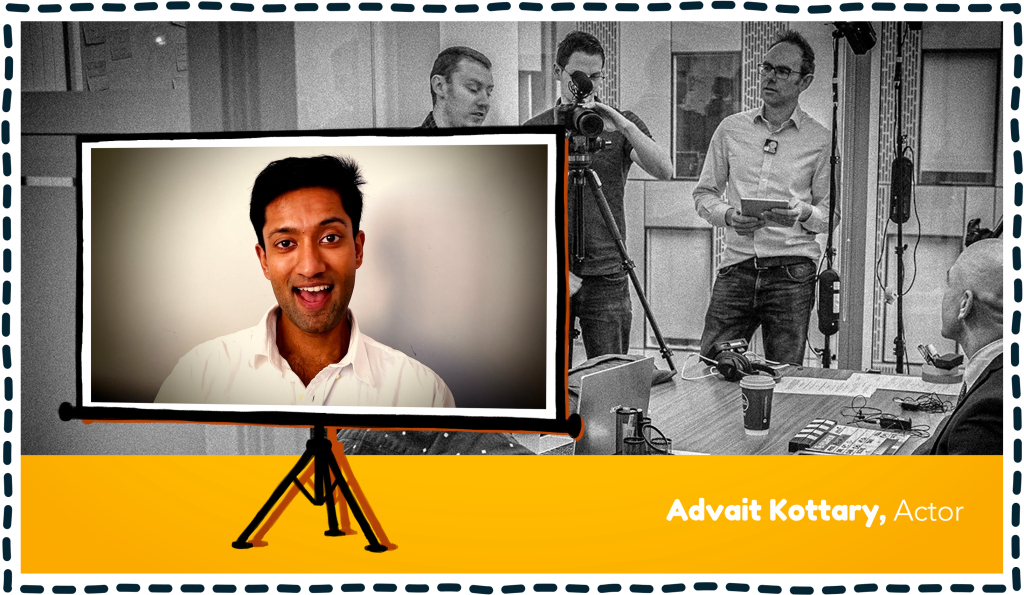
|
|
|
|
|
|
|
|
|
|
|
|

|
|
|
As Advait Kottary's insights reveal, scenario-based learning offers a powerful approach to understanding how experience transforms learning.
|
Just as Spolin used theatre games to liberate performers from mechanical thinking, our PGDip creates professional landscapes that challenge learners. Learners won't just study design; they'll inhabit complex, unpredictable environments that reveal their potential.
|
These scenarios are crafted to mirror the messy realities of professional life—spaces where functioning knowledge emerges not through instruction, but through doing. By placing learners 'in role', we create an environment where spontaneity, discovery, and critical reflection become the primary modes of learning.
|
This isn't about preparing for an ideal workplace, but designing learning experiences that develop adaptive capabilities across multiple sectors—perfect for educators, learning professionals, corporate trainers, and anyone passionate about reimagining how people learn.
|
Designed for learning professionals seeking to develop skills in creative direction, project management, storytelling, and AI integration, the programme offers a pathway from PGCert through to full MA, with opportunities to build evidence for AdvanceHE professional recognition.
|
|
Applications for the PGDip in Learning Design Methods are open now , or why not book a call with the a member of the course team to learn more?
|
|
|
|
|
|
|
|
|
|
|
|
|

|
|
|
At Ding, we know from experience asking for exactly what you need in learning development can also be a bit of a performance!
|
Consider our work with IO-Sphere; what started as a seemingly straightforward training challenge revealed a much deeper need—they didn't know at the outset they needed a full cast of fictional characters, professionally filmed scenarios, and an entire immersive narrative universe to close their employability gap!
We've developed a handy Needs Analysis tool—not as a rigid assessment, but as a collaborative exploration. It's a way to identify your current learning challenges—whether you're seeking a complete reimagining, looking to scale existing provision, or searching for strategic guidance to clarify your next big idea.
|
Think of it like finding the right director for your learning development. Sometimes you need someone to completely rewrite the script. Sometimes you need a producer to make everything run smoothly. Sometimes you just need a trusted advisor to help you see the story you're really trying to tell.
|
- Complete our 5-minute diagnostic to uncover tailored insights about your learning development needs
- Arrange a no-obligation consultation to explore your specific challenges
|
|
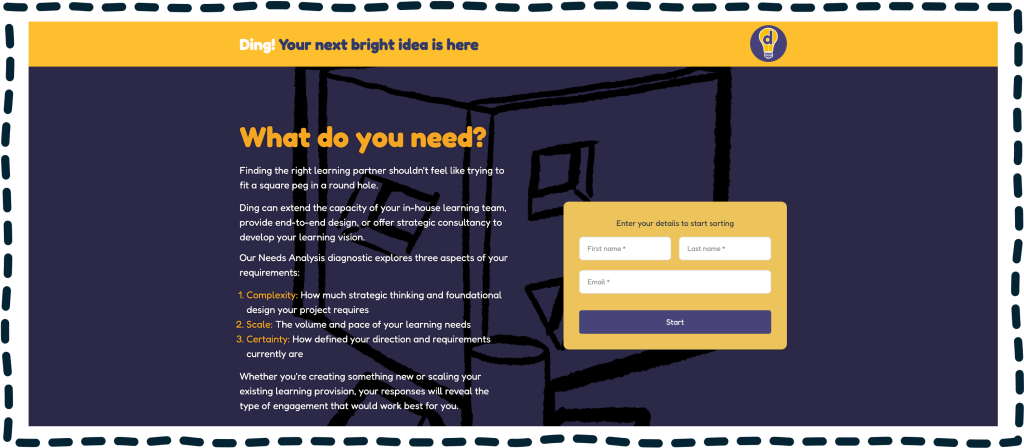
|
|
|
|
|
|
|
|
|
|

|
|
And if you'd rather have a chat right away, you can book a no-strings discovery session with the Ding team. We'll listen, explore, and help you see your learning development challenges from a fresh perspective—no pressure, just genuine conversation.
|
|
|
|
|
|
|
|
|
|
|

|
|
|
Our exploration of learning design doesn't end here. For those curious to go deeper:
|
|
|

|
|
|
|
|
|
|
|